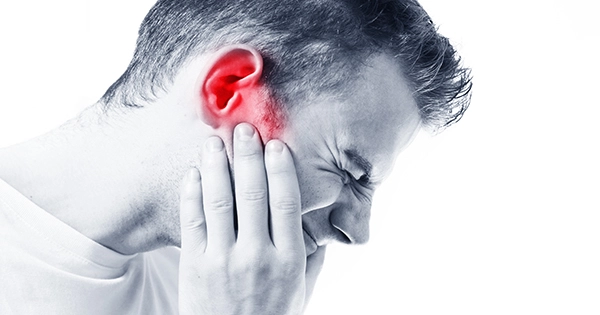Over the past few days, a piece of advice for dealing with tinnitus has been extensively shared on Twitter and Reddit, with many saying that it helped them (at least temporarily) make the ringing noise go away.
The original post instructs readers to “Put your palms on your ears and beat the soft spot in the back of your head with your fingers.” Tinnitus should disappear for most individuals after 15 to 30 seconds of what should feel like the inside of a drum. Sometimes my disappears completely.
The message looks to be a mangled version of a tip that Dr. Jan Strydom previously posted.
Put your hands over your ears so that the fingers are lightly resting on the back of your head. Just above the base of your skull, your middle fingers should be pointing in the direction of one another.
Put your middle and index fingers together, then snap your index fingers onto the skull while making a loud, drumming noise “Writer Strydom.
“40–50 times total. With this approach, some patients get relief right away. To lessen tinnitus, repeat several times each day for however long is required.
Although many people have reported success with the method, is it genuinely effective, and is there any science behind it?
First of all, tinnitus is a symptom, not a particular disease, and many different disorders might influence it. If you notice a ringing, whooshing, throbbing, or humming that disturbs you or is growing worse, your first course of action should be to see a doctor. especially if it matches your heartbeat. The same treatment is also not likely to be effective for everyone due to the variety of causes of tinnitus.
In addition to jaw and neck stress, certain patients with problems with the jaw muscles frequently also have tinnitus. Studies have demonstrated that tinnitus has been lessened as a result of reducing jaw and neck stress. Additionally, patients have benefited from stretching the suboccipital muscles in the rough area mentioned in the text above near the back of the head.
A group of researchers concluded in a study of the literature from 2011 that “Such therapy of muscular tension in the jaw and neck can relieve stress-related symptoms such as tinnitus, vertigo, auditory fullness, and pain in the jaw, neck, or headache.” For patients who received this form of treatment, a three-year follow-up evaluation revealed that the severity of all such symptoms had been greatly reduced.
According to the dental blog TruDenta, some people may find success with the suggestions made by Strydom (and later, in condensed form, on the Internet) because “you are causing the suboccipital muscles to relax and eliminate stress.”
A short tap on a muscle can make it contract. The authors note that “continuous tapping or steady pressure delivers the opposite effect: they overload the muscle, leading it to expend all of the ATP and other resources it requires to activate and contract on a regular basis.” When a sufficient number of muscle cells shut off, the muscle as a whole relaxes and you immediately experience pain alleviation.
In conclusion, if you have tinnitus that is brought on by muscular tension, the method might help, but the respite may only last a short time. As usual, if you have concerns about your tinnitus, you should speak with a doctor first.
Fact checkers have verified the accuracy of every “explainer” article at the time of publication. To maintain the information up to date, text, pictures, and links may be modified, removed, or added at a later time.
















